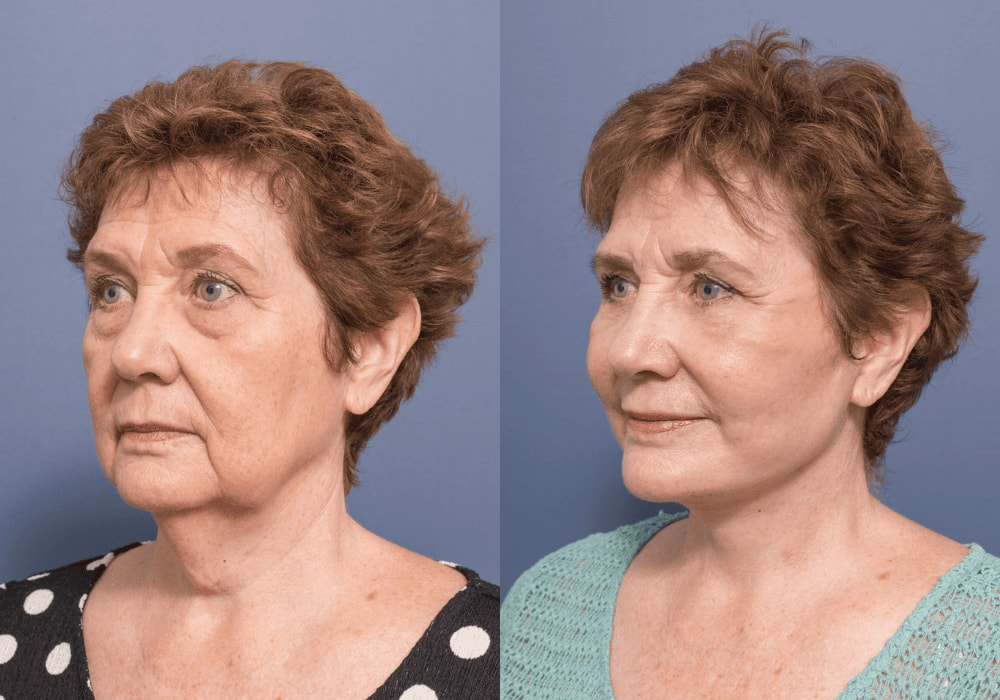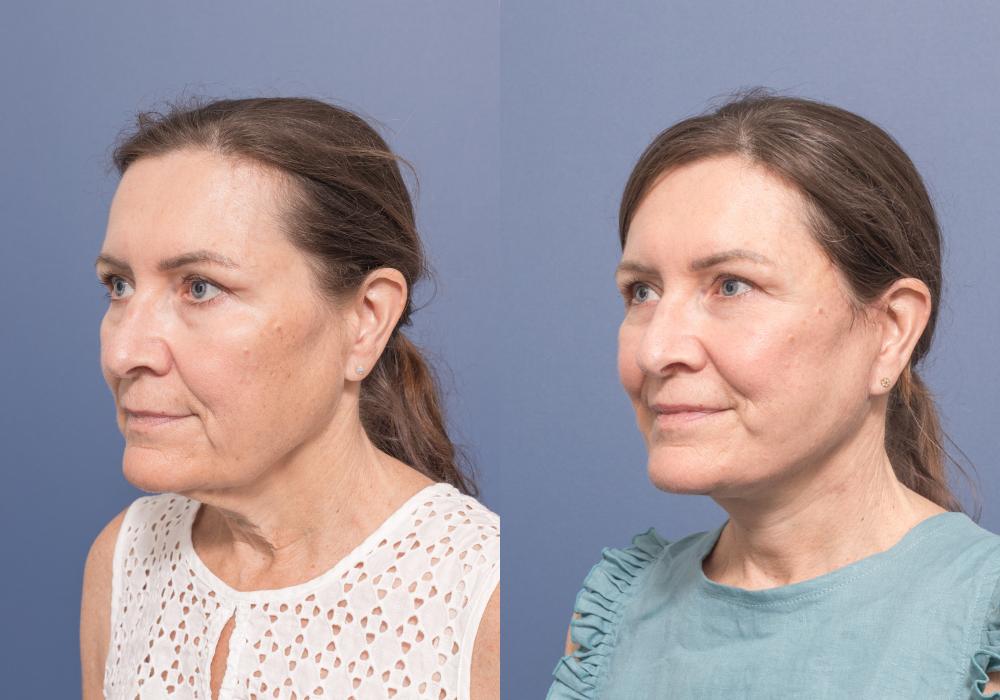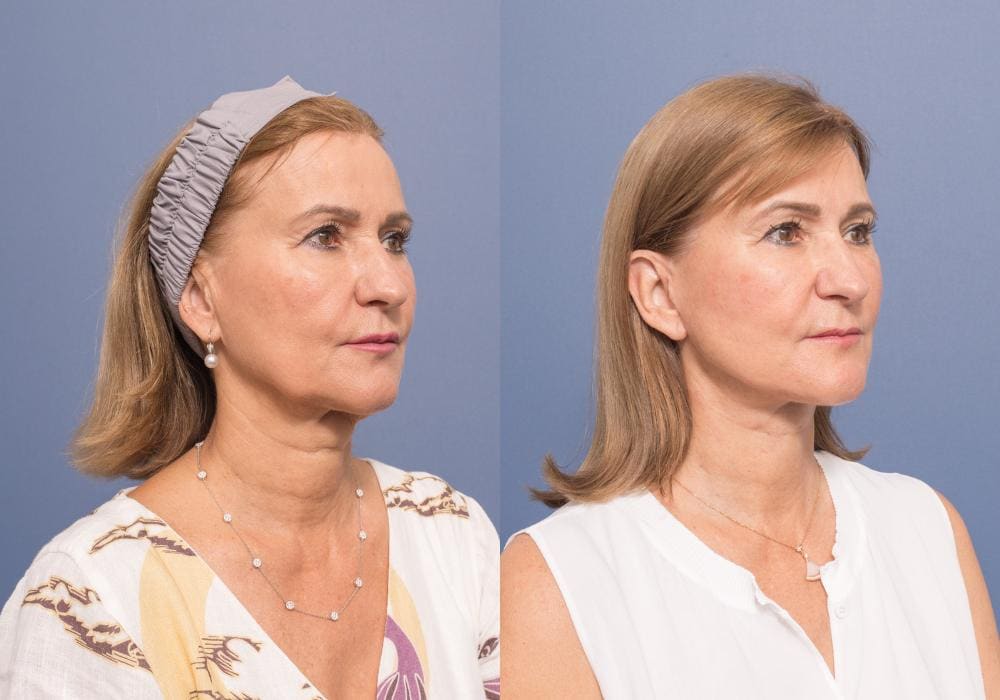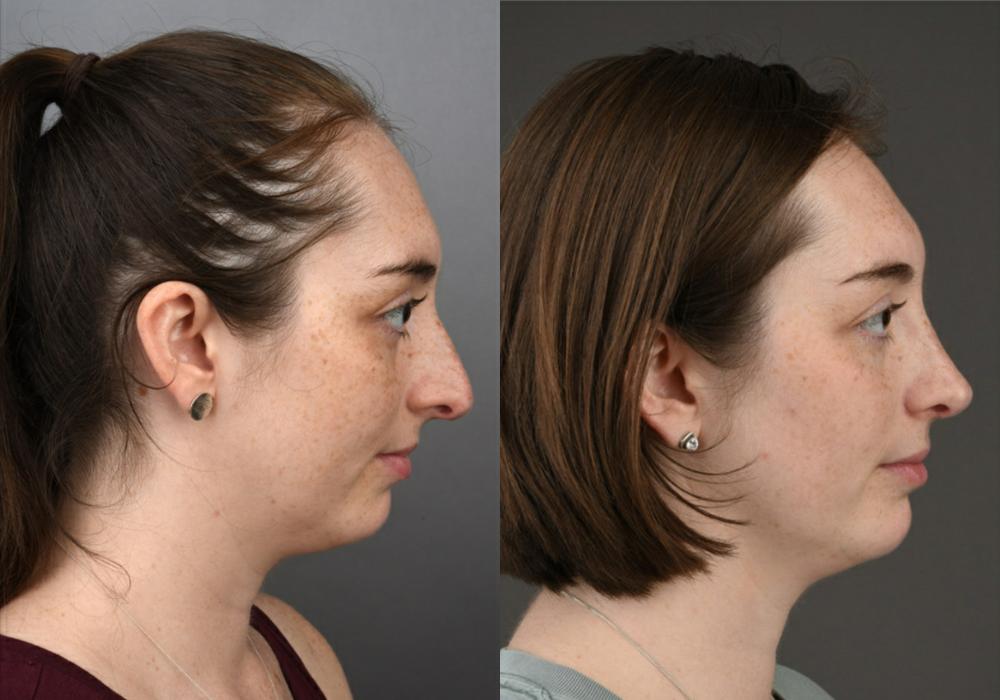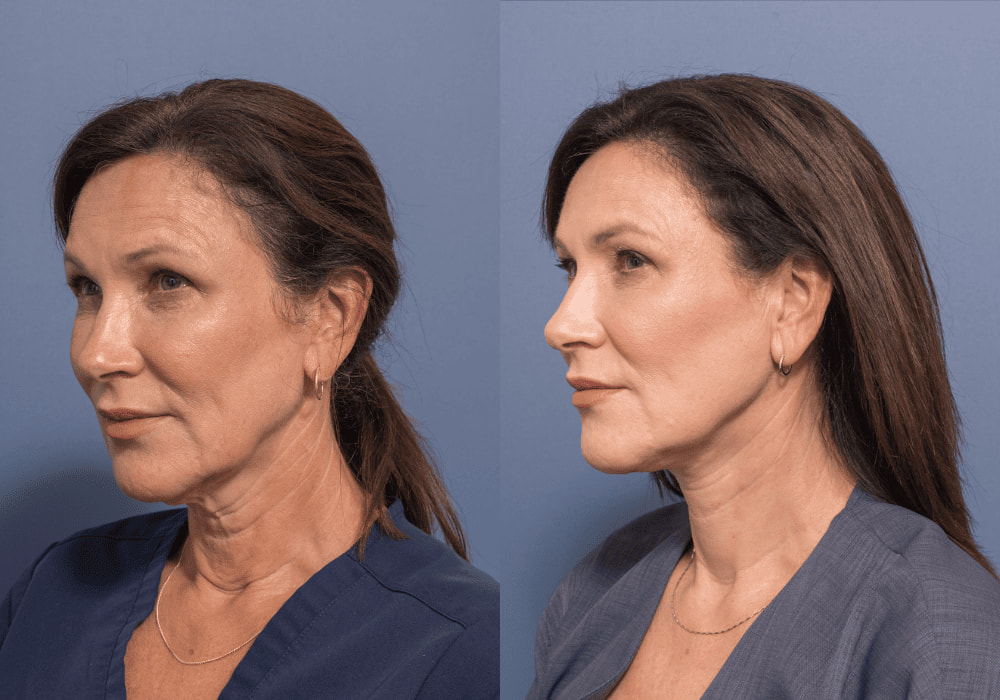
A CRITICAL STEP IN YOUR JOURNEY
Choosing a surgeon who specialises in performing facial plastic surgery procedures is an important decision that should not be taken lightly. Facial plastic surgery can result in a permanent change to your facial appearance and, as with any surgery, it also carries an element of risk so it’s essential to choose a well-qualified and experienced surgeon who you feel comfortable with.
One of the best things you can do as a patient is to become an educated consumer so that you can make the best decision on choosing a surgeon.
DR HONEYBROOK
Below are factors to consider when choosing a surgeon:
One of the most important aspects of choosing a qualified surgeon in Australia involves identifying a surgeon who is a Fellow of the Royal Australasian College of Surgeons (FRACS). The post nominal letters ‘FRACS’ indicates a doctor is recognised as a specialist surgeon in Australia with the highest level of surgical expertise and training and are registered with the Australian Health Practitioner Regulation Agency (AHPRA) as specialist surgeons.
To be admitted as a Fellow of the Royal Australasian College of Surgeons, doctors must have completed an Australian Medical Council, or equivalent, formal surgical training program which is generally 5-6 years in duration in addition to their core medical school training which is a 4–6-year process. Specialist surgeons must also complete speciality examinations at the highest level to exhibit surgical competence, prowess and ensure patient safety.
Dr. Honeybrook is a Fellow of the Royal Australian College of Surgeons (FRACS), and he is also a Fellow of the American College of Surgeons (FACS). The post nominal letters ‘FACS’ indicates Dr. Honeybrook has completed a rigorous process of obtaining surgical speciality Board Certification in the United States and his education, training, professional qualifications, surgical competence, and ethical conduct were reviewed and are consistent with the high standards of the American College of Surgeons.
Look for a surgeon who has completed additional fellowship training in facial plastic and reconstructive surgery and has significant experience performing the procedures you are interested in. A surgeon who has completed subspeciality fellowships specifically in facial plastic and reconstructive surgery has chosen to focus on this area of practice.
Dr. Honeybrook completed two, one-year subspeciality fellowships in facial plastic and reconstructive surgery in the United States with world leading authorities in facial plastic surgery in Philadelphia, New York and Louisiana. These fellowships were associated with the Ivy-league University of Pennsylvania as well as Louisiana State University. During these two years, Dr. Honeybrook’s fellowship training was focused on aesthetic surgery of the face such as deep plane face and deep neck lift, rhinoplasty, browlift, and blepharoplasty.
The importance of ongoing learning and the pursuit for excellence as a surgeon cannot be understated. Once a specialist surgeon has completed years of training, it is important the surgeon remains up-to-date with the latest techniques and technologies in their subspecialty field. Dr. Honeybrook performs regular visits internationally to visit world leaders and mentors in facial plastic surgery in the pursuit to ensure that he can offer the most advanced techniques and methods to optimise his patient results in Australia.
Specialist FRACS surgeons are also required to maintain their skills and knowledge through the Royal Australasian College of Surgeons continuing professional development (CPD) program.
urgeons should maintain professional memberships to ensure they are up-to-date with the latest developments, techniques, and advancements in their field. By being part of a professional organisation, a surgeon can also demonstrate their commitment to their profession and their dedication to providing the highest standards of care.
Dr. Honeybrook maintains the following memberships:
- Australasian Academy of Facial Plastic Surgery (AAFPS)
- American Academy of Facial Plastic and Reconstructive Surgery (AAFPRS)
- Australian Society of Otolaryngology Head and Neck Surgery (ASOHNS)
- American Board of Facial Plastic and Reconstructive Surgery (ABFPRS)
- American Board of Otolaryngology Head and Neck Surgery (ABOHNS)
- American Board of Cosmetic Surgery (ABCS)
- Royal Australasian College of Surgeons (FRACS)
- American College of Surgeons (FACS)
- ANZ Chapter of the American College of Surgeons
It is important that you feel comfortable communicating with your surgeon and to develop a good rapport with them. You should be able to ask questions and express your concerns without feeling judged or rushed. A good surgeon will take the time to listen to your concerns and provide clear and honest answers.
Dr. Honeybrook performed a study on how Facelift patients choose their surgeons and revealed two of the key reasons for patients choosing their facelift surgeon is based on interpersonal skills, such as demeanour and ability to build rapport with the patient, as well as the ability of the surgeon to adequately answer the patients questions.
Ask the surgeon to show you before and after photos of previous patients who have had the same procedure you are interested in. This will give you an idea of the surgeon’s level of skill and expertise, and help you determine if the surgeon’s style and results align with what you are looking for.
Make sure the surgeon operates only at accredited facilities that are assessed against the National Safety standards. A specialist surgeon will only operate in an accredited facility with a specialist anaesthetist and appropriately trained nursing staff to ensure the safety of the patient.
Dr. Honeybrook holds active surgical and admitting privileges at the following accredited hospitals:
- Brisbane Private Hospital
- Greenslopes Private Hospital
- Bondi Junction Private Hospital
- East Sydney Private Hospital
- Castlecrag Private Hospital
- Double Bay Private HOspital
- Brisbane Day Surgery
- Herston Private Hospital
- Westside Day Hospital
- St Andrews War Memorial Hospital
- The Wesley Hospital
- Royal Brisbane and Women’s Hospital
- Surgical Treatment and Rehabilitation Hospital (STARS)
Choosing a reputable plastic surgery practice is crucial for achieving successful outcomes and ensuring a safe surgical experience. A reputable practice will have strict protocols in place for patient safety and satisfaction, use advanced technology, and employ a team of qualified and experienced professionals. By selecting a reputable practice, individuals can feel confident that they are receiving the highest level of care and attention throughout their surgical journey.
Dr. Honeybrook currently consults at Valley Plastic Surgery in Fortitude Valley, Brisbane and One Cosmetic in Double Bay, Sydney. These practices are comprised only of specialist surgeons offering a specialist level of care.
Facial plastic surgery has come a long way in recent years, and many surgeons now use advanced technology and equipment to educate patients and achieve better results. Look for a surgeon who uses the latest techniques and equipment, such as 3D imaging, to help you visualise your potential results.
Dr. Honeybrook uses the canfield 3D Vectra imaging system which allows 3D simulations to be performed, particularly for rhinoplasty surgery.
After your surgery, you will need to follow-up with your surgeon for several weeks/months. Make sure that the surgeon you choose has a good follow-up care program and is available to answer any questions or concerns you may have after the procedure.
Keep in mind, surgery always carries some risk and unexpected complications can occur. This is the nature of all surgical procedures. This can be distressing for the patient and it is essential that the treating surgeon has the technical skills, knowledge and experience to manage potential complications and this is where a surgeons training background becomes paramount.
Dr. Honeybrook’s follow up schedule varies depending on the surgery performed but patients are seen 1-2 times in the first week, then at 1 month, 3 months, and 12 months.
A surgeon with a good aesthetic sense can understand a patient’s unique facial structure and create a customised surgical plan that enhances their natural beauty while preserving their individuality. This is particularly important in facial plastic surgery, where the goal is to achieve natural-looking results that complement the patient’s overall appearance.
The surgeons aesthetic eye also enables the surgeon to identify any asymmetries or other imperfections in the patient’s face, and to make adjustments to the surgical plan to address these issues. This attention to detail can help ensure that the final results are both aesthetically pleasing and functional, with a focus on improving the patient’s self-confidence and overall quality of life.
Be prepared to have an open and honest conversation with the surgeon about your expectations. It’s important to have realistic expectations and to be open to the surgeon’s suggestions. A good surgeon will be honest and upfront with you and may recommend alternative options that can help you achieve your goals.
One of the most important aspects of choosing a qualified surgeon in Australia involves identifying a surgeon who is a Fellow of the Royal Australasian College of Surgeons (FRACS). The post nominal letters ‘FRACS’ indicates a doctor is recognised as a specialist surgeon in Australia with the highest level of surgical expertise and training and are registered with the Australian Health Practitioner Regulation Agency (AHPRA) as specialist surgeons.
To be admitted as a Fellow of the Royal Australasian College of Surgeons, doctors must have completed an Australian Medical Council, or equivalent, formal surgical training program which is generally 5-6 years in duration in addition to their core medical school training which is a 4–6-year process. Specialist surgeons must also complete speciality examinations at the highest level to exhibit surgical competence, prowess and ensure patient safety.
Dr. Honeybrook is a Fellow of the Royal Australian College of Surgeons (FRACS), and he is also a Fellow of the American College of Surgeons (FACS). The post nominal letters ‘FACS’ indicates Dr. Honeybrook has completed a rigorous process of obtaining surgical speciality Board Certification in the United States and his education, training, professional qualifications, surgical competence, and ethical conduct were reviewed and are consistent with the high standards of the American College of Surgeons.
Lastly, consider the cost of the procedure. It is important to choose a surgeon whose fees are within your budget, but also keep in mind that the cheapest option may not always be the best option. The most important thing is to choose a qualified and experienced surgeon who you feel comfortable with and who can deliver the results you desire.
By considering these factors, you can increase your chances of finding a qualified and experienced facial plastic surgeon who can help you achieve your goals. Remember, facial plastic surgery is a significant decision, so take your time and make an informed decision. Keep in mind that, price should not be the only determining factor when choosing a surgeon, and a cheaper surgeon may not always be the best option. The most important thing is to choose a qualified and experienced surgeon who you feel comfortable with and who has the ability to safely deliver the results you desire.

